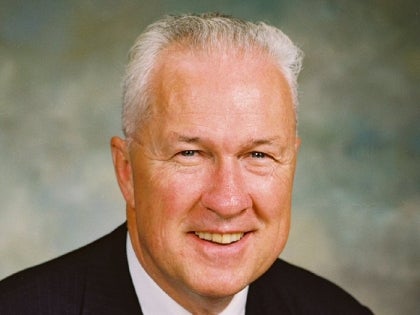
Senator Dale M. Volker Passes Civil Confinement Legislation
(Albany, NY) Senator Dale M. Volker (R-I-C, Depew) today announced that The New York State Senate has passed legislation (S.650), that would provide for the civil commitment of sexually violent predators at a secure treatment facility after they’ve completed their prison sentence in order to protect the public from criminals likely to commit repeated acts of sexual violence.
"The State Senate has worked very hard over the past several years in trying to come to an agreement with the State Assembly, to pass legislation that would keep violent sexual predators and child molesters in a secure mental health forensic facility," said Senator Dale M. Volker. "The bill that we passed today, incorporates remedies to the State Assembly’s concerns, which I firmly believe balances the protection of the law-abiding public and the mental health needs of those afflicted with this abnormal and destructive condition."
In order to protect the public and provide treatment to dangerous offenders, at least sixteen other states and the District of Columbia have passed laws authorizing the civil commitment of sexually violent predators at the end of their criminal sentences. These states include: Arizona, California, Florida, Illinois, Kansas, Massachusetts, Minnesota, Missouri, Nebraska, New Jersey, North Dakota, South Carolina, Texas, Virginia, Washington, and Wisconsin.
The United States Supreme Court has repeatedly upheld the involuntary civil commitment of dangerous persons who are unable to control their behaviors and whose mental illnesses render them a grave risk to the health and safety of the public.
Recidivism rates for persons who commit sexually violent offenses are extraordinarily high. According to a report from the New York State Department of Correctional Services, for the period from 1986 through 1995, approximately 49 percent of sex offenders who were released from New York prisons in 1986 were returned to prison for a violation of parole, or for committing a new crime.
Some of these sexually violent predators have mental abnormalities that make them even more likely to continue committing acts of sexual violence. However, the existing programs in state correctional facilities are insufficient to address this problem. As a result, these predators are eventually released into the community without the benefit of treatment or care designed to address their unique treatment needs. The Senate bill provides for such treatment at secure facilities and simultaneously extends greater protection to the public by establishing procedures to civilly commit persons who have committed acts of sexual violence and are likely to commit more sex crimes.
####

